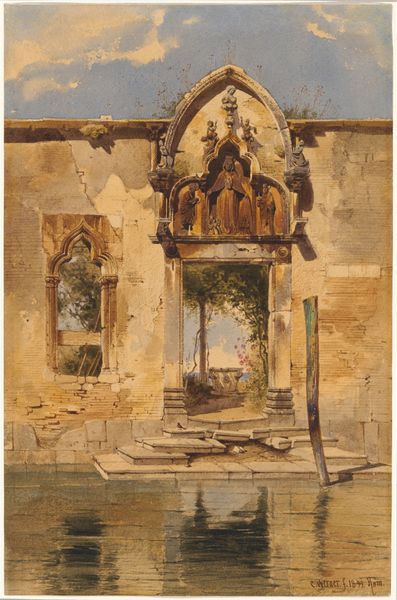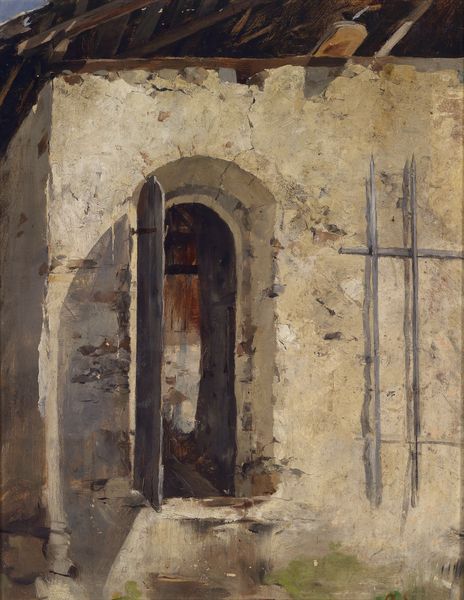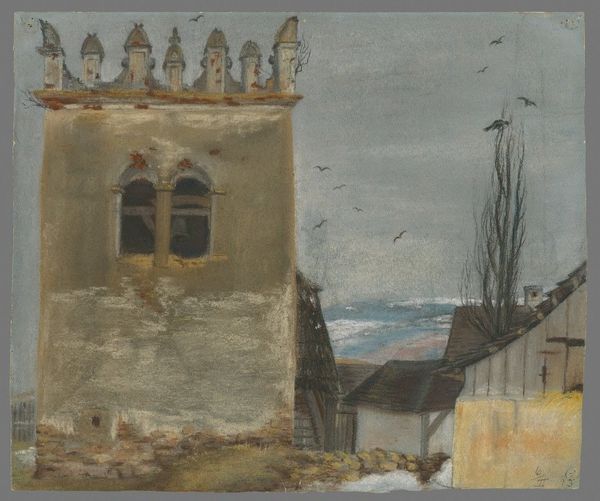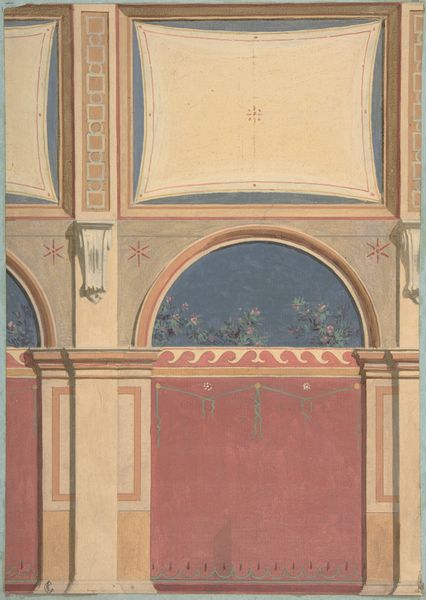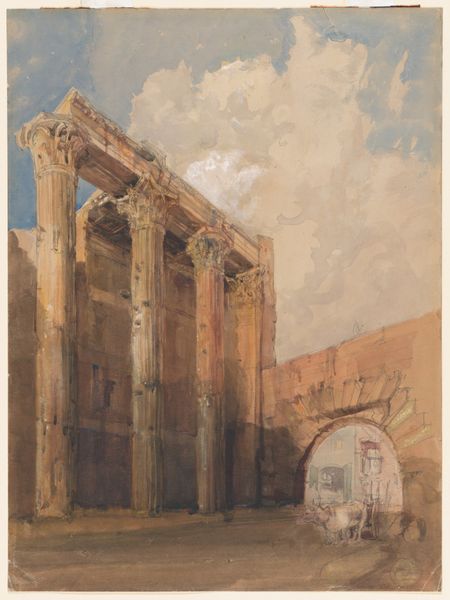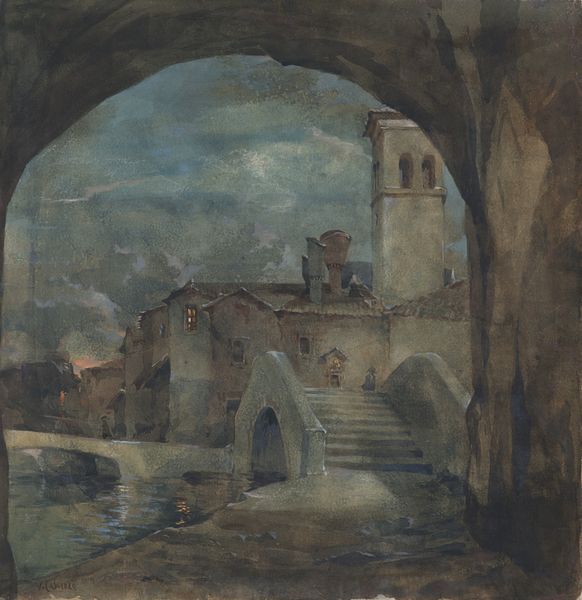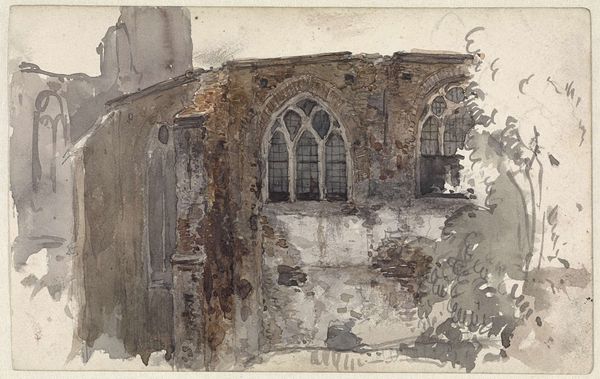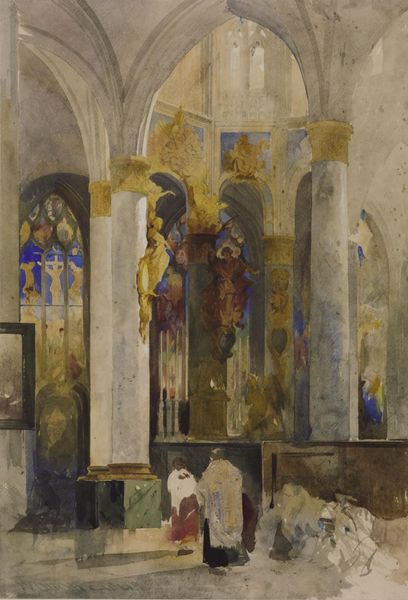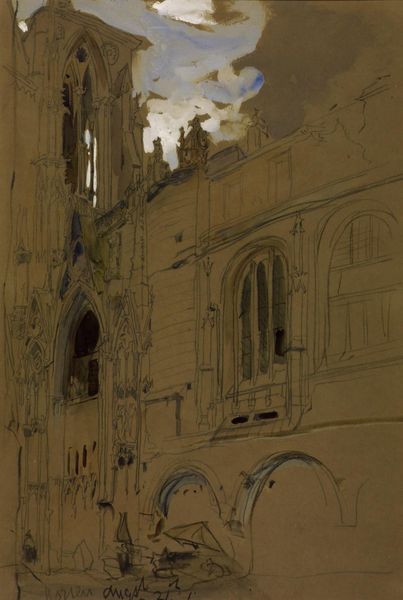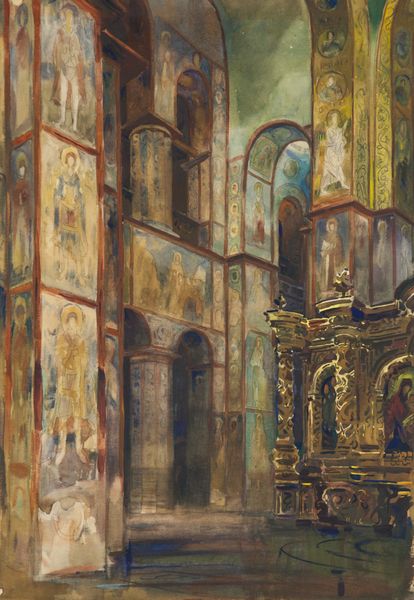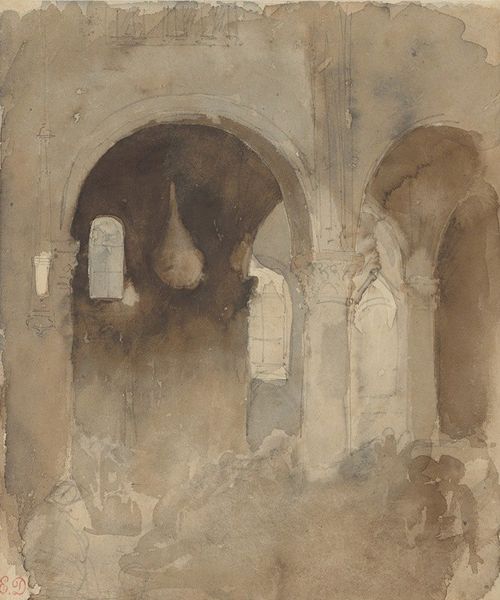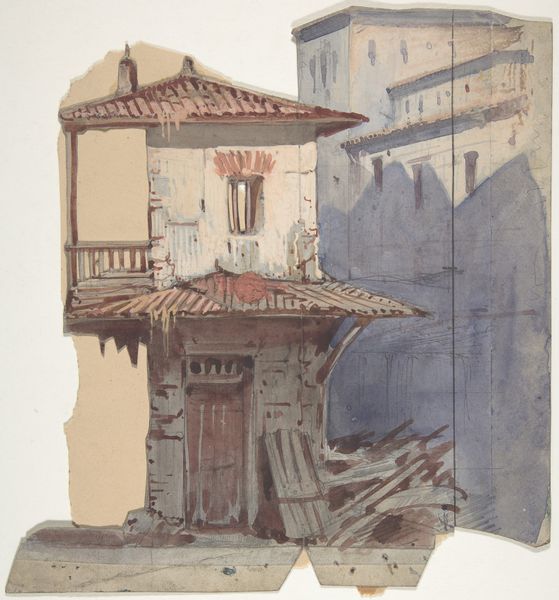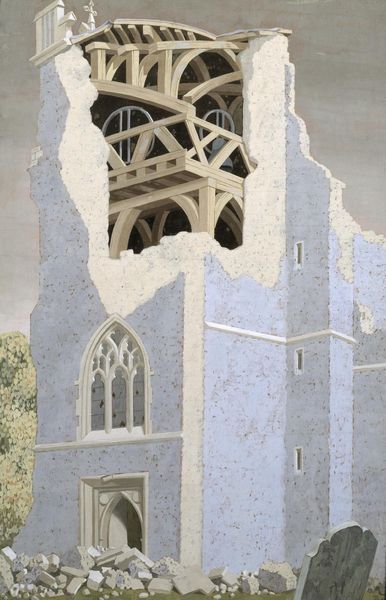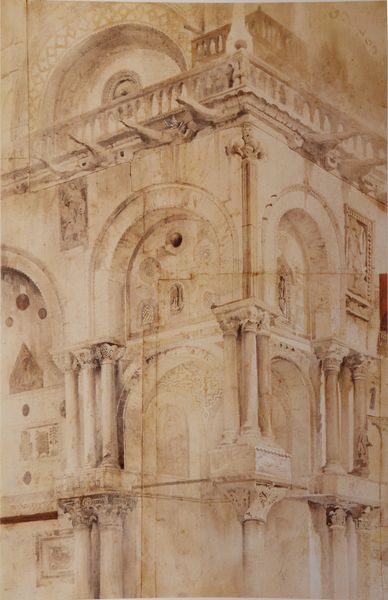
painting, oil-paint, architecture
#
painting
#
oil-paint
#
landscape
#
romanticism
#
history-painting
#
architecture
Copyright: Public domain
Editor: Here we have Andreas Achenbach’s "Study of the Ruin Altenberg," an oil painting from 1831. It feels so immediate, like a captured fragment. The ruin is so tangible in its decay, and I’m struck by the detail. How do you interpret the piece? Curator: The labor! Look at the materiality. Achenbach presents us with a very deliberate layering of materials both in the depicted subject, Altenberg Abbey, and his own painting technique. The stones, carefully quarried and dressed by laborers to build this grand structure, are now crumbling. The Abbey’s intended function as a place of labor, production, and communal existence has ceased. Editor: It does bring a physical presence to mind... All that human effort involved in construction, and now deconstruction, almost. Curator: Exactly! Consider the social context as well. By 1831, ruins like this one had become associated with both a celebration of the medieval, and the impacts of secularization. And of course, consider the production of the painting itself! Oil paint required particular skill to manufacture, the canvas had to be woven, and so on. The work celebrates not just ruin, but production and consumption of it. How does his artistic process reflect Romantic ideals for you? Editor: It's interesting that Romanticism embraced ruins. It’s not just a nostalgic glance; it's actively seeking a different connection to labor. The painting acts as a consumer good itself, referencing its cultural significance. Curator: Precisely. This artwork becomes a physical embodiment of consumption itself—the ruin is consumed by time, and this depiction of it becomes a prized object, available for private contemplation. Editor: So, it’s about more than just architectural decay; it's a commentary on labor, the changing value of materials, and artistic consumption. Thank you for this insightful conversation. Curator: My pleasure! It highlights how we should consider art not as a transcendent idea, but as something that lives through its materiality.
Comments
No comments
Be the first to comment and join the conversation on the ultimate creative platform.
